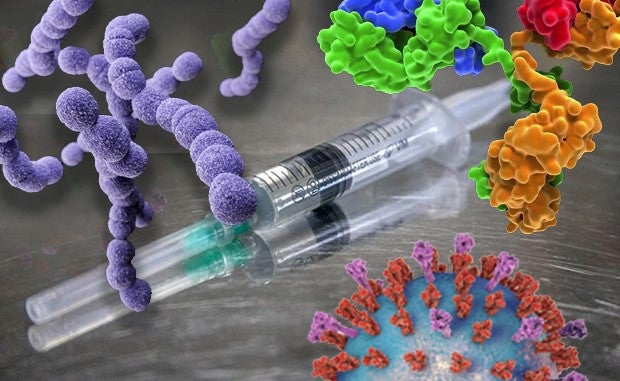

3 Advances That Could Change Patient Care

Amid the many challenges health care leaders face today, it can be easy to lose sight of some recent advances that could significantly change patient care.
Here’s a look at some breakthrough advances cited by the Association of American Medical Colleges (AAMC) that are designed to help providers tackle some of the most complex diseases.
1 | Delaying Type 1 Diabetes
Teplizumab, an injectable approved by the Food and Drug Administration (FDA) late last year, reportedly can delay the onset of Stage 3 type 1 diabetes in adults and pediatric patients eight years and older who have Stage 2 type 1 diabetes.
?his will be welcome news to the 30,000 patients who are diagnosed each year with this autoimmune disease that can damage the heart, kidneys, arteries and eyes.
The medication, sold as Tzield, binds to certain immune system cells and delays progression to Stage 3 type 1 diabetes by an average of two years and sometimes by more than a decade, notes Kevan Herold, M.D., a principal investigator of the drug and an immunologist at Yale Medicine in New Haven, Connecticut, in the AAMC report.
Takeaway
Herold hopes that this new strategy of preventive immune therapy can be applied to other autoimmune conditions, including rheumatoid arthritis and multiple sclerosis, where blood markers indicate likely disease development.
2 | Accelerating Sepsis Detection
Rapid detection is critical to sepsis survival, but this is difficult given that there is no one test for sepsis, and its symptoms can mimic many other conditions. An artificial intelligence (AI)-driven program developed at Johns Hopkins Medical Center can shorten sepsis detection by nearly six hours from traditional methods.
Patients are 20% less likely to die of sepsis because of the new system, an extensive hospital study found. The Targeted Real-time Early Warning System (TREWS) scours medical records and clinical notes to identify patients at risk of life-threatening complications. Experts fed the AI algorithm thousands of previous patients’ health records so it could recognize signs of sepsis.
When the tool identifies an at-risk patient, it fires off an alert to the physician. It includes an explanation of why it’s flagging the patient as well as evidenced-based recommendations for how to proceed.
Johns Hopkins tested the system in five hospitals with 4,000 clinicians and 590,000 patients over two years. Sepsis-related deaths dropped 20%, according to a report last summer in Nature Medicine.
Takeaway
This is the first case in which AI was used on a large scale by front-line clinicians in hospitals, said Albert Wu, M.D., director of the Johns Hopkins Center for Health Services and Outcomes Research. He noted that the platform, which is being disseminated by AI company Bayesian Health, also is being used to try to detect other conditions.
3 | Tackling RSV
Respiratory syncytial virus (RSV) drew concern this past winter for its role in the tripledemic that, together with COVID-19 and flu, impacted many U.S. hospitals. Earlier this month, the FDA gave its first-ever approval to a vaccine that protects against RSV, which is associated with 6,000 to 10,000 deaths each year in adults 65 and older and as many as 160,000 hospitalizations within this group.
GlaxoSmithKline’s vaccine is targeted to adults 60 and older and was approved by the FDA on May 3. The Centers for Disease Control and Prevention in June is slated to weigh in on whether to recommend the vaccine. The FDA also is expected to rule shortly on a Pfizer vaccine for that population, according to the AAMC report. In addition, Pfizer has been granted priority review of a vaccine for use in pregnant women that’s intended to protect infants after birth.
In trials, the GSK vaccine was 83% effective against confirmed RSV lower respiratory disease in people 60 and older, according to a New England Journal of Medicine report.
Takeaway
A small percentage (one out of some 12,000 in the GSK trial and two out of some 17,000 Pfizer recipients) developed Guillain-Barré syndrome, in which the immune system attacks a person’s nervous system. When the vaccines start to be given to millions of people, we will have to track them to see whether there is a slight increase in such rare side effects, said Ann Falsey, M.D., a University of Rochester School of Medicine professor of medicine, who has been pursuing an RSV vaccine for decades.



